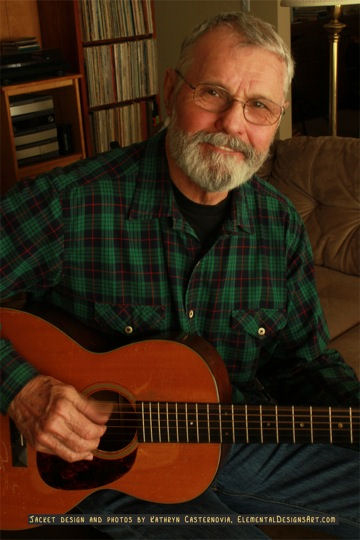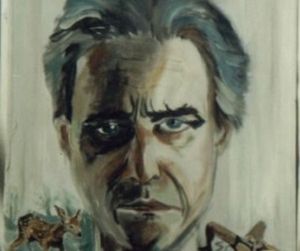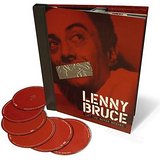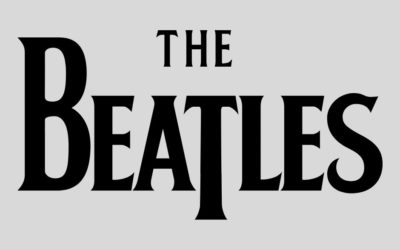“Patrick Tovatt is doing meaningful music at the right time. I was introduced to him by Mike Miller who sold me some equipment and knew I had a studio.
‘I got a guy for you’ he said! “In this case, I don’t believe it’s the microphone or the equipment. I think it’s the singer. Patrick comes from a theatrical background and 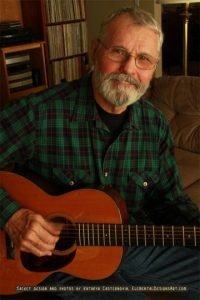 understands direction but I didn’t want to modify his style. It presented a challenge and I was ready for it. There were very few instances where I had to actually give direction on how he needed to compromise his delivery to accommodate the recording process. I wanted to maintain the delivery of the integrity of his message while retaining his dynamics. To me, dynamics are a key element in music that have been squelched by the over- use of limiters and compressors. Enough said. “I made some suggestions on what instruments might be beneficial and used for his songs to help deliver the vibration without approaching “over production”. I also heard some places where I could add drums or brushes. His first CD has only voice and guitar, singing in someone’s living room. He wanted to take it a step further with this next album. I’m really impressed by his social messages.
understands direction but I didn’t want to modify his style. It presented a challenge and I was ready for it. There were very few instances where I had to actually give direction on how he needed to compromise his delivery to accommodate the recording process. I wanted to maintain the delivery of the integrity of his message while retaining his dynamics. To me, dynamics are a key element in music that have been squelched by the over- use of limiters and compressors. Enough said. “I made some suggestions on what instruments might be beneficial and used for his songs to help deliver the vibration without approaching “over production”. I also heard some places where I could add drums or brushes. His first CD has only voice and guitar, singing in someone’s living room. He wanted to take it a step further with this next album. I’m really impressed by his social messages.
“He (and I) grew up in a different time and seen changes in values over the last half a century and especially the last few decades. And that’s what he is singing about.
And that’s what I like. On some levels he goes back to an era of the social protest song, when it could still ‘get through.’ You can hear it on the tracks ‘Silver Haze’ and ‘the Courthouse Steps,’ where he writes and sings on specific timely topics. “Patrick is a recording artist cutting his first albums after age 70 and the knowledge and wisdom conveyed in his voice really is captured on ‘Lost
and Found.’ I was basically here to help. It’s pretty damn listenable.”
—Dennis Dragon, producer and engineer of Patrick Tovatt & The Geriatric Society’s “Lost & Found.”
Q: Your first album, “Plain & Nothing Fancy” in 2009 began when you were turning age 70. The liner notes stress that “Were it not for the catastrophe of the recent Bush presidency, probably none of these songs would have been written. Now that my apparatus is cranked up, however, I’ve no thought of stopping.”
And with the release of your second album in May,2012 “Lost & Found,” your concerns about the planet, the human condition and the U.S. government inform some of the tunes.
A: My life-long commitment to progressive politics continues with this new album. I’ve been a socialist since I was age 14. And I have watched the evolution of American political life from something that seemed like something that was relatively rational and at least constructive in that at least we did accomplish things like Medi Care and Medi Cade, Social Security and laws constraining the banks to some degree. But I watched the dissolution of all that kind of progressive energy and the dissent of political dialogue into the sewer. And I realized there are some forces acting out of greed and selfishness and don’t give a shit about what happens to the rest of society.
Q: I usually don’t like to ask singer and songwriters to explain or detail the genesis of all their new songs on a just released album. I like to let the new music speak for itself for a while and then check out where it lands or gets discovered organically or commercially. However, “Silver Haze” on your just issued “Lost and Found” is overtly political and ecological in scope and I’d like to know how this very topical song was birthed.
A: The inspiration for the new tune, “Silver Haze,’comes from the long-simmering controversy surrounding the “chemtrail” phenomenon. As I began to research the chemtrail thing, it moved from possible urban myth to actual fact…whatever it’s purpose…”they”…somebody IS spraying aerosols into the atmosphere. Though there is no longer any doubt about the fact of spraying, the unanswered questions abound: Why? What? Who? being the salient ones, amongst innumerable others.
“So I wrote ‘Silver Space’ to open this subject in my listener’s heads. If we don’t ask openly, and demand answers, we will continue to be sprayed without explanation or recourse. The GAO has a voluminous report on “Climate Engineering Strategies” that details the survey of current scientific appraisal of the three main approaches to mechanically mitigating the effect of the increase of greenhouse gas in the atmosphere…Carbon Recapture, Solar Radiation/Reflectivity Management and Surface Reflective Enhancement. The subject of the song is the SRM process, where aerosols are sprayed into the upper atmosphere in a loose cross pattern that disperse to form a reflective haze or shield. This “shield” purportedly reflects a small fraction of solar radiation. None of these technologies, according to the GAO survey, was judged near “mature…’ on a scale of 0-10, with 10 mature and 0 completely untested in theory or practice, the SRM technology scored less than 2! It was also judged to be the most invasive and potentially threatening to natural systems and to be the most expensive! The report goes on to discuss various equipment options from giant refueling tankers, which don’t fly high enough, to F-15 fighters which do, but have a tiny payload…
The fact that this is on the net as a government document is eerie to say the least. It says nothing about whether any of these strategies have been implemented…as one can plainly see by looking up…and makes no recommendations beyond assessing all the technologies as untested and immature!
“So I don’t know what the purpose of the aerosol spraying might be…I’ve heard everything from population control to compromising open pollenate seeds so that only GMO crops can thrive…Whatever…I wrote ‘Silver Haze’ as an emotional response to the Fact of spraying, not an attempt to explain it.
“’Silver Haze’ was used in organizer Deborah J. Whitman’s power-point presentation in August Conference to ‘Discuss if Geo-Engineers are Playing God with Our Weather’ at the Wilshire Ebell Theater. Whitman is President of Environmental Voices.
“I think the new album shows, and if you are progressive and if you want us to be a more humane society next month than we were last month, then maybe there’s another way to look at this. And perhaps my songs offer a view for consideration.
Q: Tell me about the name of the group.
“The band name Geriatric Society is both a hook and a comment. But everyone in this group playing my songs, and the producer and engineer, Dennis Dragon, will tell you that everyone keeps getting better with age. It’s only the entertainment media that has a pre-occupation with youth. Life has a fourth act and I’m a better artist now. I do not want to sit down and write a three-act play. I’ve pushed that rock up the hill.
Geriatric Society. Here is what it is. It isn’t over. Not only is it over the concept or the idea of the elder is a good concept. And we must not lose it. The media’s concern is selling ‘US’ and “People” magazines and youth.
Q: Your values and concern for humanity and earth was formed long before obsession with youth culture entertainment as the primary outlet and the general dismissal as grown adults creating original entertainment.
A: I grew up in a county that was bigger than CN. It had 4,500 people in it. Gunnison, Colorado. I lived there until I was age ten. That world was totally different. Conversation, reading, radio. No TV. No coaxial cable over the Rocky Mountains. So reading and rational thought and discussion was really important. My dad was a newspaper man before he became a Professor. The idea that you would prepare yourself and engage yourself in a discussion about an issue and that you had to back up your shit. That was the way things were done.
“I think we can mobilize some of the energy as a surrogate. The thing about being over age 70 and doing my first recordings was initially I had to deal with some comments about my age, but when I went in front of people a lot of people none of that existed anymore. I’m doing exactly what I thought I was going to do. I’m going to revive my music career.
Q: Did your work as an actor and playwright influence some of the decisions about some of the political songs and themes documented in your debut album and continuing on “Lost and Found?”
A: I did it in my plays. I wrote plays that were overtly political. And some of the work I did in the mainstream theater was political. But for the most part, American theater isn’t very radicalized. There is a portion of it that is but I really wasn’t a child of that. I was primarily in the classical theater. But I was always the guy who directed the play that was pretty far out there. I was the Samuel Beckett guy.
Q: What is the main difference between writing songs and writing plays?
A: As to songs versus playwriting, the songs are little capsules and they come however they come and you get ‘em and then you mess with them but you can put them aside. And they really don’t form continuity until you have all the other parts. A play has a theme, a plot and characters that you carry through the whole thing and much more of a piece. It comes together as a piece pretty early on. Then you refine it. Or change it and the collaboration begins with the director, producer and actors. The play is totally singular.
“What I learned from the theater and acting is that I had to compress ideas for songs. My lyrics are dense. I don‘t repeat refrains often.
“With my music I want to wake people up. I want to heal people, particular people who have been damaged by this political insanity, and I want to encourage people to raise their voices. I want people to open up their mouths and shoot them off.
“My first album was called ‘Plain & Fancy’ ‘cause there was nothing elaborate about it. I did it in a living room. Voice and microphone.
“The first album was basically what I wanted to write and addressed some areas. “Wheels Of Justice,” “Veteran’s Day Rag,” Big Capital Answers Frequently Asked Questions.” I wanted to write the protest songs essentially that I grew up with in the tradition of Ewan McColl, Woody Guthrie, Judy Collins, Cisco Houston, and The Weavers.
Q: How does the second album emerge?
A: I played the material and discovered the new stuff was much more personal, especially done in a live setting. There are deeply autobiographical songs in the second collection and there is less overtly stuff in terms of a percentage. And I wanted to reveal a more rounded view of what it means to be human. And literally the ‘Lost and Found’ title comes from each of these songs that discuss something lost or found. Each song has that as an underlying motif.
Q: What happens when instruments are added as evidenced in the new CD?
A: Totally different trip. And the melodic and musical quality of the songs emerges. When it’s just me and the guitar and voice I think of it as a vehicle to get the words across.
“I met Mike Miller, a local Mac computer guy, and he’s also a music freak and a sound engineer in his own right. And he went out to help Dennis Dragon out on some technical computer stuff. So Michael said one day, ‘Man, you got to check out Dennis Dragon’s studio, the former Steve Miller place. It’s happening again. You need to meet Dennis and gave me his number. I was thinking about recording a CD and wanted to see his studio. You walk in and you know you are in a dedicated completely audio prepared studio. It was built as a studio.
“Dennis is totally L.A. but he is absolutely present. And as a support for a musical aspiration I couldn’t do better. He’s right there. I had confidence in him from the very first session. Initially I was toying with the idea of doing another vocal and guitar album, but as we reviewed my material, Dennis would say, ‘I hear brushes on this tune.’ I had never worked with a drummer and he said, ‘I’m a drummer.’ So he sat down and changed the drum kit, the hi hat, ‘Let’s do a take.’ And the sequencing on the second album emerged from the collaboration between Dennis and me. ‘Cause I had one order and we changed it and he made some suggestions like moving one song from the end and another into a different place.
Q: And what has the implementation of instruments with your voice and lyrics established?
A: When I got Dennis, or have the bass or flute and all the other instruments, the actual musical qualities emerge. ‘Oh my God. There is a song in there.’ I knew a lot more about recording when it was time for the second album. Not just from playing live and developing the songs, but once an actor always an actor. You just can’t get away from the fact that you are telling a story. I ain’t Josh Groban who has a kind of pop opera voice. I’m a story teller. So I’m an actor. And my voice isn’t about the musicality of it. It’s about getting the lyric and the content of the song into the listener’s mental and emotional space with some technique and the least amount of ornamentation.
Q: Who is on the new “Lost & Found” recording?
A: I met the members of the group who perform with me on the new album in various ways. I found Dennis. I needed a bass player. I have a friend who I play with at music gatherings and song shares every once in a while in Ashland, Oregon. Gary Creek. Bass on all tunes and acoustic as well. He ran an alternative bluegrass band in east Tennessee.
“I needed a harmonica player. And I found this guy, Bob Jackson Miner. Who is known as Harmonica Bob. A hell of a player, teaches workshops and vocal technique. And he agreed to come and play a session because he liked the lyrics I sent him.
“Barney Paul was a road musician who was in Mel Tillis’ band. He’s in the western swing hall of fame. He’s a lead guitar player and has been on the road.
“There’s also a jazz player, Dennis Freese on the album. A reed player and composer. He settled in Ashland and teaches. He does flute and clarinet on the new album.
Chrystal Reeves is on the album. She plays violin and viola on the sessions. I knew her from guitar workshops up in Pugent Sound, Washington. She plays in swing and jazz ensembles all over the rouge valley. She is the go to fiddle player.
Q: Let’s discuss the biographical path to your current 2012 music and recording world. You grew up in Colorado, moved to Indiana at age eleven and you played string instruments from a very early time.
A: At age seven I started playing the violin. Mozart and Bach. Later in high school I used to listen to Randy’s Record Rack, WLAC, a station out of Gallatin, Tennesse. Gene Noble was a DJ. He played Muddy Waters. I noticed a new world of music and records.
Q: You then enrolled at Harvard in 1959.
A: I then went away to college. I wasn’t into rock ‘n’ roll. I was into folk music. I went to Harvard. I was a national Navy scholar. I turned down an appointment to Annapolis. It was the era of the rad scare, HUAC. And I grew up in an ulta-progressive Democratic household. So my dad was a progressive and furious with Sen. Joseph McCarthy. I resigned my commission after 10 weeks. I got a de-commission and they allowed me continue at Harvard, my dad picked up the tuition, God bless him. I was in the naval reserve but I was a full time student.
Q: Around this time you find yourself in a dorm on campus with folk singer Tom Rush.
A: That was where I learned to play the guitar, became a folk singer. This is 1959. I was at school and in the dorm with Tom Rush. He was already playing around in coffee houses. He was a great performer. He told me. ‘You can’t pick up a girl with a viola…’ I got a Gibson guitar and started playing. Tom gave me lessons and I played with him. He allowed me to come up and do rhythm and sing harmonies. So on 4 or 5 tunes when he would do his coffee house gigs. Playing music became a secret ambition at the time.
“I left Harvard after my freshman year. ‘This is not a good place for me.’ Then I worked for a year carried my guitar all over the country. The Hunt Club in Newport, Rhode Island. A lot at the Counter Point in Bloomington. I did covers. I didn’t write a song until 2006.
“Then I went back to Antioch College in Yellow Springs, Ohio. Fantastic place. And I discovered theater. I went for four years and then over to the U.K. for The London School of Film Technique. Now the London Film School. Roman Polanski came. Anthony Asquith. I went to London in 1964. I came back to the states and the Beatles were all the rage. They opened me up to listening to stuff. I got a cable and invited to join a theater company the Playhouse In The Park in Cincinnati, Ohio. And became a member of the company. I was a director. And an actor. The guitar went under my bed for forty years.
Q: Music was put on hold for a while as your acting career began and became steady.
A: I was a contract player for Universal after being at ACT. The American Conservatory Theater. I got work in network television. ‘Marcus Welby, MD. ‘The Name of the Game.’
Q: You also encountered the revolutionary comedy group Firesign Theater in the very late 60s in Hollywood.
A: I was hanging out with the Firesign Theater and David Grimm. A piano player who lived next door to David Ossman of the group. Grimm played piano on one of their early albums. Firesign Theater influenced me. I loved the wordplay. Phil Austin and I cooked up a little movie, ‘Everything You Know Is Wrong.’ I did political theater with them when they did the Natural Surrealist Light People’s Party. I was the secretary of Agricultural in the shadow cabinet and the keynote speaker in Santa Barbara. The Firesign Theater organized it.
Q: Comment on each Firesign Theater member.
A: Phil Austin and I were really good friends. Phil brilliant, acerbic and a huge amount of fun to be friends with. Phil Proctor. Really smart, really kind of insightful, Ambitious. Funny. But much more of a Hollywood guy than any of the other ones. Peter Bergman was a sage, he was a little bit remote but loved to laugh. Ossman. He’s the most professorial. He was a bit older. He was a measured but antic wit. And an original thinker. They were a revelation. I never enjoyed myself as much in a performance space when those four guys let me do it. I later ran a radio drama series for KPFK. ‘Live From Studio B.’ The Theater of the Ear. The Popcorn series. The Firesign Theater came on and did a murder mystery. Paul Vangelisti and I ran the series.
Q: Then what happened?
A: Then I went back to a farm in Kentucky in 1970. Had it for 18 years. Raised cattle. I was asked to direct a play. Then I went to New York to be a soap opera actor and ‘Another World,’ “Search For Tomorrow’ and ‘As The World Turns” for 10 years. Learn your fuckin’ lines the night before and be prepared.
“All along I was the artistic director of a theater in Norfolk, Virginia. The Virginia State Company. I had been acting in musicals, original musicals. I would sing all along as a performer in musical theater.
“I did a detective musical. I directed the second Broadway musical of ‘Pump Boys and Dinettes’ with Loudon Wainwright, Shawn Colvin and Ronee Blakeley. We took it out on the road with Tom Chapin and Maria Maldaur. I then settled into the soap opera thing.
Q: How did you land in Oregon which became the world where you re-activated an interest in writing songs and performing?
A: My ex-wife with my son moved to Oregon. And I wanted to be close to him. I moved these guitars that had been under my bed. A 1929 Martin and a 1969 Martin, and a Horner knockoff. And I decided ‘I’m gonna become what I was supposed to become before. I’m going to become a troubadour.’ I bought a house and started playing in my house.
Q: What happened next?
A: I then went to downtown Grants Pass Oregon one day. I looked at this guy’s shop. And he had some progressive signs in his window. Paul Hendeershot. School of Guitar. I took lessons. This is in 2006. I write and develop all the songs that end up on my debut album. I started going to guitar camps and met some really good players and superb musicians and played my songs in front of people who were a very critical audience. I already had a grasp of the song structure, going back to 1959, playing folk songs, but I pulled out my viola and invited by Paul and his wife Cammy to make up a trio so I played some viola with them playing guitars and singing. I began to revive my viola skills as well and that informed the melodic stuff that I started to think about.
Q: Over the last year you’ve performed all over the state of Oregon.
A: I’ve played at the Downtowne Coffee House in Talent Oregon, Café Artichoke in Portland, and several other venues, including a political benefit in Phoenix, Oregon. In July I performed at the Southern Oregon Songwriter’s Association summer concert series.

